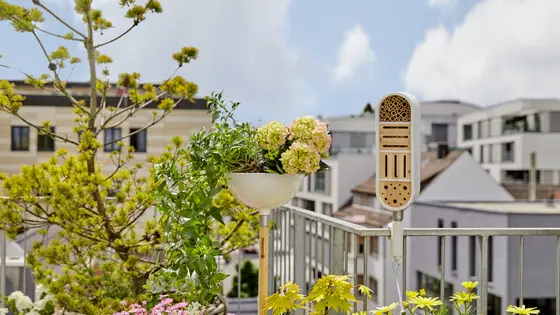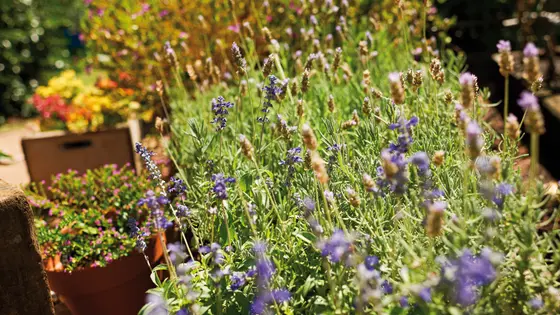Everyone dreams of a beautiful, lush, green garden. But sometimes, life, time and money can get in the way. But don't fear, GARDENA is here to help you nurture your green thumb. Here are seven good tips for gardening beginners and novices, to help you succeed and get the garden you've always dreamed of.
1. What do you want to do with your garden?
A playground for the kids, a kitchen garden or a sea of flowers? It’s hard to combine all your wishes and desires. So limit yourself, at least for starters. It’ll take some time to create your own personal Eden. Consider which functions you would like in your garden – seating areas, playing areas, flowerbeds – before setting to work.
Start slowly...
If you’re the new owner of a house or an apartment with a garden or plantations you’d do well taking it slow the first season. Many plants are perennial and will flower year after year. Other areas might have to be dug up and revived.
2. How much can you do on your own?
Here it is a matter of balancing time, know-how and money. For many gardeners much of the charm is doing everything single-handedly. Others hire professionals: garden designers or landscapers. But you’re seldom totally alone. You can always ask your neighbours for help.

3. What are the climate conditions where you live?
There can be many different types of hardiness zones in one single country. A good start is to ask your local garden centre or plant nursery for advice. They know everything there is to know about vegetation, climate and soil. Randomly buying plants without checking first can turn out to be an expensive venture.
4. Height, time and colour.
There are three simple things to keep in mind when planting a flowerbed: height, time and colour. Make sure to pick species with flowering periods that overlap, and thus extend the season. Combine colours that fit together. Make sure tall plants don’t obscure lower ones.

5. Quality pays off
Naturally, there are cheap tools and low-priced flowers to be found at supermarkets. But plants don’t flourish in bad, oligotrophic soils. Tools should last more than a single season. Buy quality tools and materials! Buy fewer but more expensive things and they’ll last for a much longer time.
6. Share with friends and neighbours
Every person in the neighbourhood doesn’t need his or her own lawn mower or cultivator. Borrow from your neighbours or get together and share the costs when making bigger investments (and buy products of high quality!). You can share and exchange plants and bulbs with your friends and your neighbours, exchange tips and strategies and help each other out when you need to lift heavy things. Don’t forget to invite them to a garden party as a thank you!









